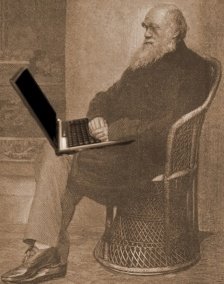I confess to read
The Economist newspaper more than occasionally and I find the Science and Technology section readable but rigorous.In this week's issue there is an
article about a new class of drugs that has recently gained approval in the US.
One of the things I have learned reading this article is about how mutations might occur that could lead to tumour formation. Up to now, as far as I was concerned, a mutation is a mutation is a mutation, that is, something that just happens and, ooops, one more ticket for the lottery of cancer. Well, it seems that a curious way to turn off large parts of the DNA is by increasing the packing density of the DNA so it becomes effectively unreadable. It seems that cancer cells can use this mechanism to avoid expressing genes so they can proliferate faster as well as avoid apoptosis and senescence. Given that the drug that has just been granted regulatory approval works best with leukemia it seems that the mechanisms employed by tumour cells to deactivate certain cell mechanisms varies from cancer to cancer. Still, having cancer cells with the capability of turning off significant parts of the DNA is such an evolutionary advantage that it should not be surprising if equivalent mechanisms are found in other types of cancer.
